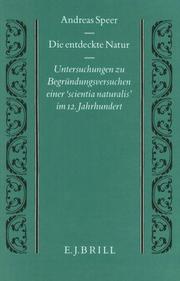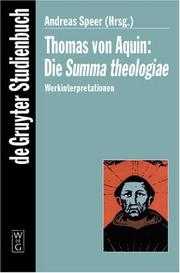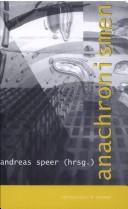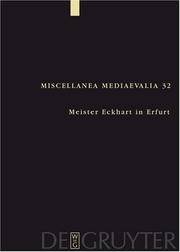| Listing 1 - 10 of 110 | << page >> |
Sort by
|

ISBN: 9004103457 9004452184 9789004103450 9789004452183 Year: 1995 Volume: 45 Publisher: Leiden Brill
Abstract | Keywords | Export | Availability | Bookmark
 Loading...
Loading...Choose an application
- Reference Manager
- EndNote
- RefWorks (Direct export to RefWorks)
This volume deals with the "discovery of nature" in the 12th century, focusing on its epistemological consequences for the speculative understanding of nature. A symbolic understanding is gradually replaced by an original interest, guided by reason alone, in the structure, constitution and process of the physical world. The growing knowledge of the "natural world" - which took the form of a systematic knowledge of causes - parallels attempts to establish a coherent "scientia naturalis". The main protagonists of the so-called "School of Chartres" characterize the goal of this "philosophia mundi" by reference to Timaeus 28A, as a search for the "legitimate cause and reason" of natural beings and structures. This incremental discovery of nature is linked to the development of physics as a science of nature; it leads to an "éveil métaphysique" (M.D. Chenu) and must be understood as one of the most important causes for the growing interest in Aristotle's writings (and in particular with the "libri naturales"). The discovery of nature in the 12th century thus provides an important philosophical impetus for the wider assimilitation of the Aristotelian corpus. At the same time, it leads to the development of an original and distinctively medieval model of natural philosophy.
Science --- Science, Medieval --- Philosophy of nature --- Sciences --- Sciences médiévales --- Philosophie de la nature --- History --- Philosophy --- Histoire --- Philosophie --- Science, Medieval. --- Philosophy, Medieval. --- Philosophy. --- 165.9 --- Philosophy, Medieval --- -Science, Medieval --- #GROL:SEMI-1'10/11' --- #GROL:SEMI-113<09> --- Medieval science --- Natural science --- Science of science --- Medieval philosophy --- Scholasticism --- Geschiedenis van de wetenschappelijke ontwikkeling en kennis --- 165.9 Geschiedenis der kennis. Ontwikkeling van de mythologie tot wetenschap --- 165.9 Geschiedenis van de wetenschappelijke ontwikkeling en kennis --- Geschiedenis der kennis. Ontwikkeling van de mythologie tot wetenschap --- Sciences médiévales --- Normal science --- Philosophy of science

ISBN: 3110171252 3110905442 9783110171259 Year: 2005 Volume: *14 Publisher: Berlin de Gruyter
Abstract | Keywords | Export | Availability | Bookmark
 Loading...
Loading...Choose an application
- Reference Manager
- EndNote
- RefWorks (Direct export to RefWorks)
Book
ISBN: 3871631655 9783871631658 Year: 1987 Volume: 32 Publisher: Werl Coelde
Abstract | Keywords | Export | Availability | Bookmark
 Loading...
Loading...Choose an application
- Reference Manager
- EndNote
- RefWorks (Direct export to RefWorks)
Truth --- History --- Bonaventure, --- 2 BONAVENTURA --- -#GROL:MEDO-277'12' Bona --- Conviction --- Belief and doubt --- Philosophy --- Skepticism --- Certainty --- Necessity (Philosophy) --- Pragmatism --- Godsdienst. Theologie--BONAVENTURA --- Bonaventure Saint, Cardinal --- 2 BONAVENTURA Godsdienst. Theologie--BONAVENTURA --- #GROL:MEDO-277'12' Bona --- Boaventura, --- Bonaventura, --- Bonawentura, --- Boneventura, --- Buenaventura, --- Būnāwintūrā, --- Fidanza, Giovanni, --- Sheng Wen-te, --- Wen-te, --- Pseudo-Bonaventure --- Truth - History --- Bonaventure, - Saint, Cardinal, - approximately 1217-1274
Book
ISBN: 9783969752838 Year: 2023 Publisher: Boston : BRILL,
Abstract | Keywords | Export | Availability | Bookmark
 Loading...
Loading...Choose an application
- Reference Manager
- EndNote
- RefWorks (Direct export to RefWorks)
Das Buch zeigt, warum es kein Mittelalter gegeben hat, und warum sich auf diese Weise ein ganz neuer Blick auf 1000 Jahre Philosophie eröffnet. Es zeigt zugleich, dass dieses Jahrtausend vielgestaltig und vielsprachig, interdisziplinär, transkulturell und multireligiös war. Das gilt auch für die Philosophie. Das gemeinsame spätantike Erbe bildete den Ausgangspunkt für vielfältige Austauschbeziehungen über Sprachgrenzen hinweg. Hierfür bietet das Buch viele anschauliche Beispiele. Grundlage sind die Übersetzungen aus dem Griechischen in das Arabische, Hebräische und Lateinische. Zugleich werden zentrale philosophische Fragen weiterentwickelt. Die Erweiterung der Wissenschaften erhält ihren Ort an verschiedenen Bildungsinstitutionen, vor allem an den neuen Universitäten, die ab dem 13. Jahrhundert ihren weltweiten Siegeszug antreten. Eine zentrale Rolle spielt die Philosophie, die dieses vielfältige Jahrtausend wie keine andere Wissenschaft repräsentiert und in Gedanken fasst.
Book
ISBN: 9783402112007 Year: 2018 Publisher: Münster Aschendorff
Abstract | Keywords | Export | Availability | Bookmark
 Loading...
Loading...Choose an application
- Reference Manager
- EndNote
- RefWorks (Direct export to RefWorks)
Book
ISBN: 9783897703599 Year: 2010 Publisher: Köln Salon
Abstract | Keywords | Export | Availability | Bookmark
 Loading...
Loading...Choose an application
- Reference Manager
- EndNote
- RefWorks (Direct export to RefWorks)

ISBN: 3826025652 Year: 2003 Publisher: Würzburg Königshausen und Neumann
Abstract | Keywords | Export | Availability | Bookmark
 Loading...
Loading...Choose an application
- Reference Manager
- EndNote
- RefWorks (Direct export to RefWorks)
History --- Teleology --- Time --- Philosophy
Article
Abstract | Keywords | Export | Availability | Bookmark
 Loading...
Loading...Choose an application
- Reference Manager
- EndNote
- RefWorks (Direct export to RefWorks)
Book
ISBN: 9783957432834 Year: 2023 Publisher: Paderborn Brill Mentis
Abstract | Keywords | Export | Availability | Bookmark
 Loading...
Loading...Choose an application
- Reference Manager
- EndNote
- RefWorks (Direct export to RefWorks)

ISSN: 05444128 ISBN: 9783110185836 3110185830 9786612193309 144161771X 1282193309 3110193892 9781441617712 9783110193893 9781282193307 6612193301 Year: 2005 Volume: 32 Publisher: Berlin de Gruyter
Abstract | Keywords | Export | Availability | Bookmark
 Loading...
Loading...Choose an application
- Reference Manager
- EndNote
- RefWorks (Direct export to RefWorks)
Meister Eckhart spent some twenty years in the Dominican convent in Erfurt. This volume addresses the need for more research into Eckhart's time in Erfurt. The 27 papers address the important trends in research into Eckhart and inquire into the consequences these have for our assessment of Meister Eckhart.
Eckhart [Meister] --- Mysticism --- History --- Eckhart, --- Erfurt (Germany) --- Intellectual life --- Erfurt --- Kongress --- Monographic series --- Dark night of the soul --- Mystical theology --- Theology, Mystical --- Spiritual life --- Negative theology --- Eckart, --- Eckehart, --- Eckhart, Johannes, --- Ekharti, --- Ėkkhart, --- Mysticisme --- Congresses. --- Histoire --- Congrès --- Erfurt (Allemagne) --- Church history --- Congresses --- Vie intellectuelle --- Histoire religieuse --- Intellectueel leven. 5e-15e eeuw. (Reeks) --- Wijsbegeerte. 5e-15e eeuw. (Reeks) --- Civilisation médiévale. (Collection) --- Vie intellectuelle. 5e-15e s. (Collection) --- Philosophie. 5e-15e s. (Collection) --- Cultuur (Middeleeuwse). (Reeks) --- Eckhart --- Middle Ages, 600-1500 --- Middle Ages, 500-1500 --- Mysticism - History - Middle Ages, 600-1500 - Congresses. --- Eckhart ou eckart (johannes, dit maitre), theologien allemand, 1260-1327 --- Congres
| Listing 1 - 10 of 110 | << page >> |
Sort by
|

 Search
Search Feedback
Feedback About UniCat
About UniCat  Help
Help News
News